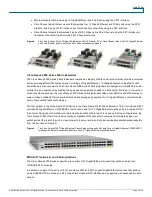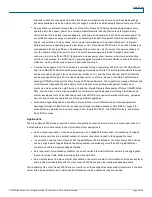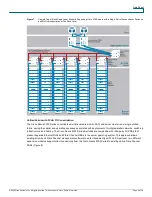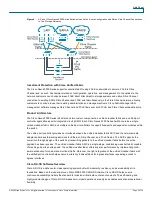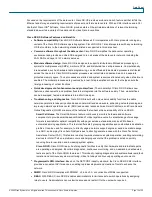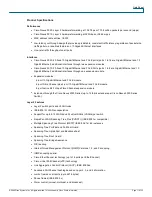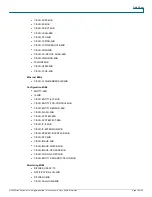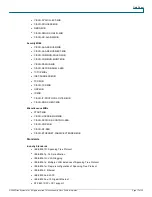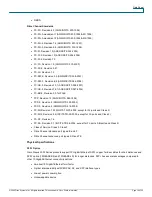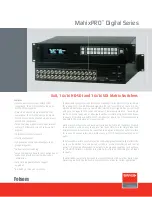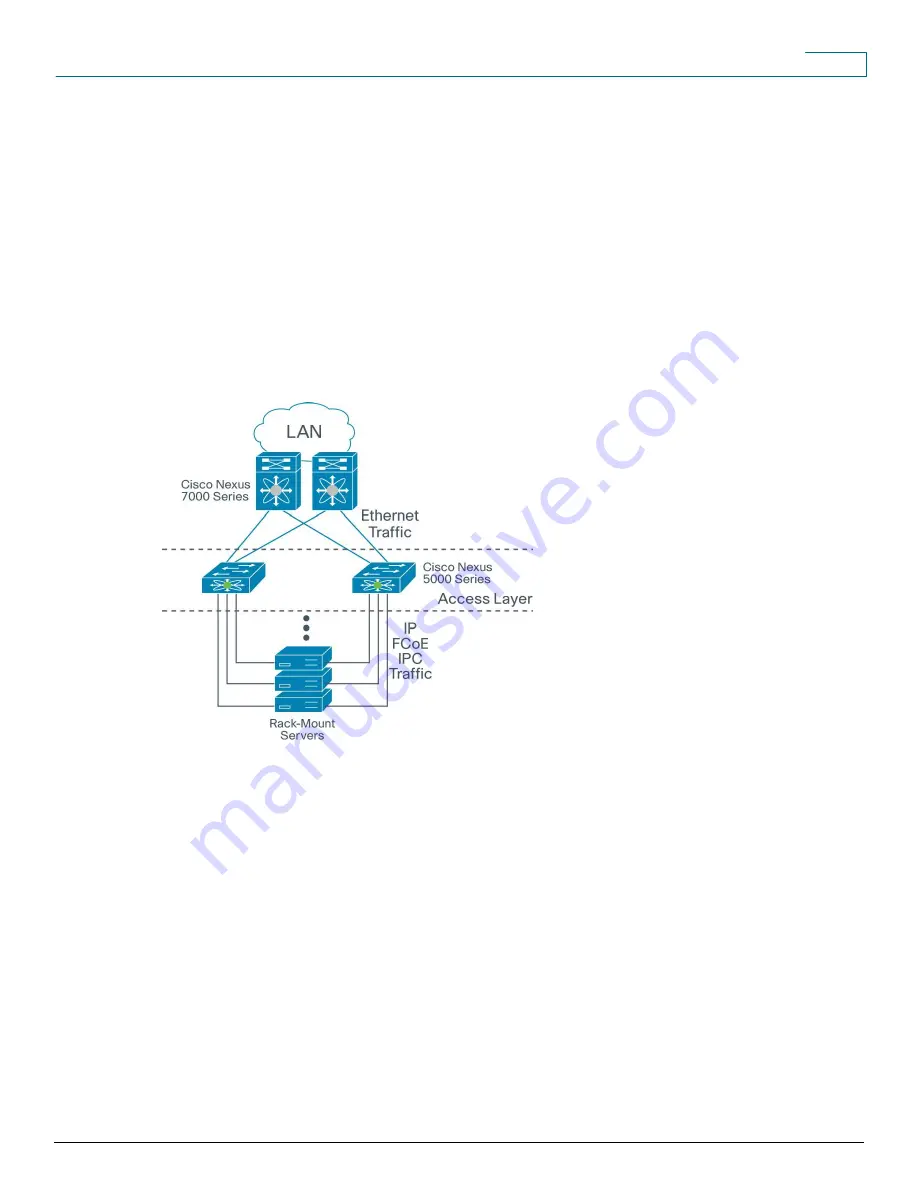
Data Sheet
© 2009 Cisco Systems, Inc. All rights reserved. This document is Cisco Public Information.
Page 7 of 22
Rack-Level 10 Gigabit Ethernet Access-Layer Switch
The Cisco Nexus 5000 Series is designed with the density, performance, front-to-back cooling, and rear port
configuration that make it ideal for aggregating a large number of 10 Gigabit Ethernet links from servers into a
smaller number of uplinks to aggregation-layer switches. The switch port density allows each switch to support a
single rack or neighboring racks using the SFP+ direct-attach 10 Gigabit copper cabling option. The Cisco Nexus
5000 Series Switches can be purchased with only the Ethernet capabilities enabled, allowing IT departments to
deploy them in parallel with existing Fibre Channel SANs. Figure 6 shows an active-active pair of Cisco Nexus 5000
Series Switches cross-connected to redundant Ethernet NICs in servers. Instead of using multiple Gigabit Ethernet
connections to servers for LAN, virtual machine mobility applications, and Small Computer System Interface over IP
(iSCSI) SAN support, customers can combine their traffic over a consolidated, lossless, low-latency 10 Gigabit
Ethernet fabric.
Figure 6. The Cisco Nexus 5000 Series Can Be Deployed as a Top-of-Rack, Access-Layer Switch in Parallel with Existing Fibre
Channel SANs
Consolidated Gigabit Ethernet Top-of-Rack Access-Layer System
One deployment scenario involves equipping each data center rack with two Cisco Nexus 2148T Gigabit Ethernet
Fabric Extenders connected to two upstream Cisco Nexus 5000 Series Switches (Figure 7). Up to 48 servers can
connect to each fabric extender. Assuming that these servers are dual-homed, a pair of Cisco Nexus 5020 Switches
can connect up to 576 servers (12 fabric extenders).



